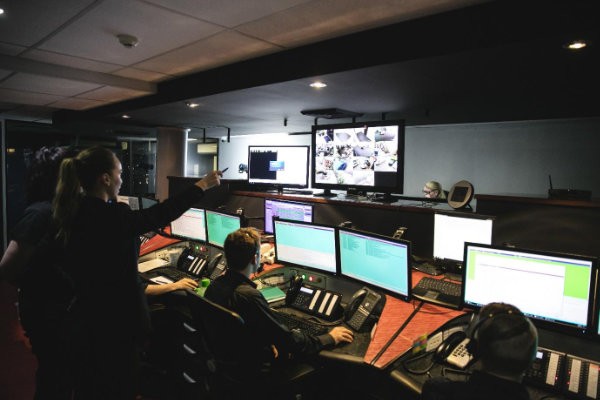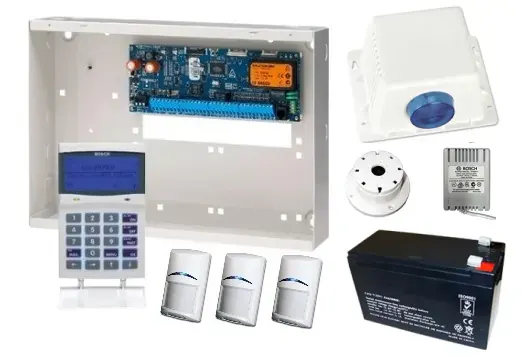How does home security monitoring work?
When it comes to your family home, the safety of you and those around you is a top priority each and every day. Whether it is 9 am in the morning or 11 pm at night, you want to know that your house is protected to the same level. Home security monitoring, also known as ‘back to base’ monitoring, provides your home with an added level of protection, ensuring your family, home, and possessions are safeguarded 24/7 regardless of what you're doing or where you are.

Although it offers peace of mind to know that your house may have home security monitoring, do you know how it works and what happens if an alarm is triggered? A lot of people do not, therefore we thought we would put some information together around that exact topic. If you would like to know more, get in contact with the Alltronic Security team and they can answer any further questions you may have.

What happens when the alarm is triggered?
When a security alarm in a home security monitoring system is triggered anywhere in your home, whether it is a door or window sensor or a motion detector, a signal is sent from your security system alarm panel to the alarm monitoring centre. This signal is usually triggered after a 15 to 45-second delay, as this delay is the time allowed by the system for a resident to enter the code to disarm when entering the home under normal circumstances. An example of this may be an accidental alarm trip - you do not want the alarm monitoring centre receiving a signal every time your dog triggers the alarm or your cat is moving around the house, so a delay allows you to enter the alarm disarming code before a signal is sent.

If you do not enter a disarm code within the delay period, the alarm centre receives various information about the alarm activation, such as which sensor was activated, in which area of the building the sensor is located, as well as your address. Some systems can link CCTV camera vision to the monitoring service, which allows them to access more detailed information on what's actually happening at your property. The alarm monitoring centre staff then contact the first number on your preset list of contacts.
How does the alarm monitoring centre respond?
When you are setting up a security monitoring service in your home, you'll be asked to decide on a set of step-by-step procedures to follow when an alarm activation occurs.
A standard home alarm system monitoring could have the following steps:
- Contact the home directly at - the home number
- If no answer - call the homeowner on 041# ### ###
- If non-contactable - call secondary contact (maybe a trusted neighbour or nearby family member) 041# ### ###
- If non-contactable - dispatch guard response service
There is a huge range of variations which could be made for this arrangement and your monitoring service may have its own preferred procedure. Speak to your home security company for expert advice on your requirements or the specific risk level of your home or neighbourhood.

The monitoring station will also receive a notification of an alarm activation when you are at home, as well as when you are out. This provides extra protection when you're asleep or family members are home alone, not just when your home is empty.
Complete security protection
Your monitoring service can also supervise personal duress buttons, smoke alarms (if connected to the alarm system) and a range of commercial applications such as a cold room or equipment down alarms, depending on the system and your requirements.

Monitored security systems are the next level in home security, presenting residents with coverage from an independent company who are professionally trained to handle a huge variety of alarm activation situations. They offer peace of mind when it comes to home security, no matter where your home is located, and there is a range of options to choose from to suit every security need.
Monitored vs unmonitored security systems
If you are reading this and wondering whether you need a monitored system (as you have read that unmonitored systems are cheaper and still offer great security), the answer is yes, you do. Although monitored systems usually have higher costs, both upfront and ongoing, they are generally a better option for the following reasons :
- Convenient: If you are away from home, you don’t have to worry about monitoring the system yourself
- Comprehensive: A lot of the time, if you sign up for security monitoring with a security company for a particular period of time, you will receive some or all of your security equipment without charge. They will likely install it too, which is even better!
- 24/7 response: No matter the time of day, your system is watched by a professional and any break-in or other emergency can be responded to immediately
If your top priorities are peace of mind and convenience, and you can afford to spend that little bit more, a monitored system is definitely a better option. It offers round-the-clock observation by a professional, with high-level emergency response options and notification of security members if need be. If however money is a big sticking point, and you don’t have a problem watching the system yourself, then an unmonitored security system is likely a better option for you.

Your local security system experts
Interested in home alarm monitoring in Brisbane, have some further questions about whether a monitored system is best for your home? Contact the team at Alltronic Security for more information on 07 3353 3248 or complete our enquiry form today. Your safety is our number one priority, so find out how we can help you today.
Resources :
Safewise (Unmonitored vs monitored systems): https://www.safewise.com/home-security-faq/monitored-unmonitored-systems/
Safewise (How does alarm monitoring work): https://www.safewise.com/home-security-faq/how-does-alarm-monitoring-work/
Economical: https://www.economical.com/en/blog/economical-blog/march-2017/pros-and-cons-of-monitored-home-security-systems